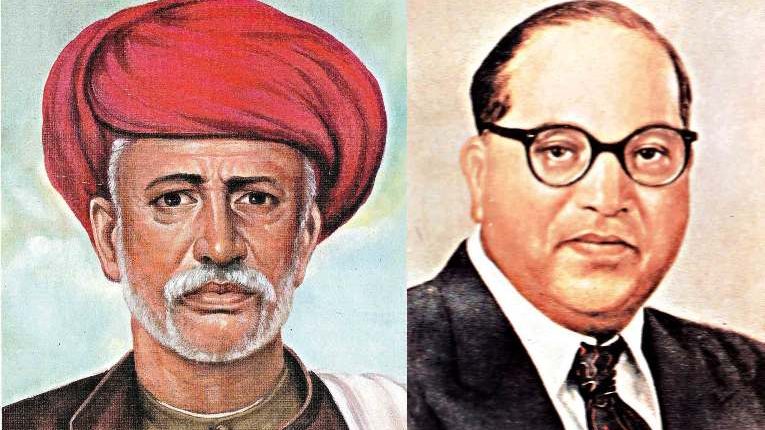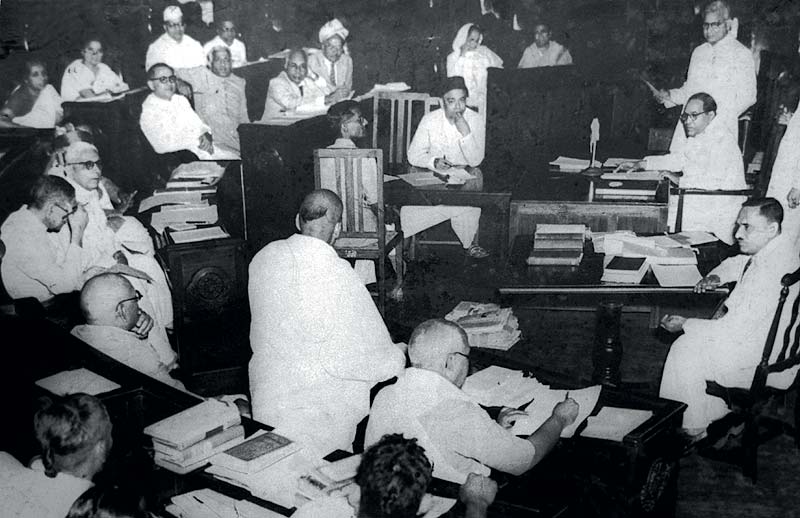Continued from the first instalment
Caste was yet to assume the form of class in Jotirao Phule’s lifetime. Yet, Phule could envisage that a class-based social order would emerge in the future, and keeping that in mind, he built class-based organizations to take on the caste system. At the time, there was no scope for a political party in India. But drawing inspiration from Phule, Ambedkar founded the Indian Labour Party in 1936. However, later, Ambedkar seemed to have become disillusioned with the theory that caste can be annihilated through class. That was probably why in 1944 he disbanded the Indian Labour Party and established the Scheduled Castes Federation – an outfit based solely on caste. Ambedkar thus chose the path of mobilizing a specific caste. This was the beginning of Ambedkarism, which remains on that path even today.
Education
Phule’s stand on education is also revolutionary. Phule’s Brahmin friends used to back his educational initiatives. His schools imparted modern education to the children of Shudra and Atishudra families. But the children would also be taught why and how caste was to be annihilated, which would be met with opposition from Phule’s Brahmin friends. Admonishing them, he asks, “What is the purpose of education?” And then goes on to answer the question himself.
“ … What I meant was that they (Shudras-Atishudras) should be imparted an education of the highest standard which can help them realize what is good and what is bad for them … ”[1]
Phule was clear that Shudras-AtiShudras should be imparted an education of the highest standard and should also be told what kind of injustices and atrocities were committed by the ancestors of the Brahmins so that they are inspired to fight against injustice. With this objective, he wrote two booklets – Brahmanon ka Kasab (Brahmins’ deceit) and Baliraja – for prescribed reading in government schools. However, fearing a Brahmin backlash, the British government did not include the booklets in the syllabi for schools.[2]
Phule and Ambedkar did lead struggles on the ground, but their work as writers was much greater. Books on history are weapons in any cultural war. Annihilation of caste would involve a cultural war. To prepare the new generation for this war, schools and colleges would need an education through which students would imbibe the necessary values. This could not be done during British rule out of fear of the Brahmins, and after Independence, this was simply out of the question as Brahmins dominated the power structure.

The cultural discourse of Phule and Ambedkar
The theory of a cultural war is central to Phuleism. Phule launched a cultural war by writing Gulamgiri. He also challenged the brahmanical cultural counter-revolution by organizing Baliraja Utsav, Navratra Utsav, Shiva Jayanti Utsav and so on.
It is another matter that the brahmanical camp came out on top in this cultural war. Ganpati Utsav was launched to counter the Baliraja Utsav, and “Gau Brahmin Pratipalak Shivaji” (Shivaji: The protector of cows and Brahmins) was pitted against “Kulwadi Kulbhushan Shivaji” [Shivaji: The pride of Kunbis (peasant farmers)]. Ambedkar took this cultural war to the next level by writing Riddles in Hinduism.
Phule’s women discourse
Phule was well ahead of his time. He was a great proponent of gender equality and wanted women to be respected and treated with dignity. In fact, he considered women superior to men. Science also backs this revolutionary idea. Women and men can partner in all kinds of work. They can even exchange the jobs they have been traditionally doing. But men can never share in the labour pain that women have to undergo. As women bear this excruciating pain, they are superior to men. Phule furnishes many other arguments to prove the superiority of women. When Ambedkar drafted the Hindu Code Bill, he was probably inspired by Phule’s ode to women.
Social justice
Phule’s theory of reservations is revolutionary. Phule was aggressive on this issue. The present reservations regime rooted in the Constitution is defensive. Phule wrote, “The appointment of Bhat Brahmins (to government posts) in excess of their proportion brings infinite benefits to the Brahmins.
“And so, till the children of the Shudra farmers acquire the ability to take up government positions, Brahmins should not be appointed to these posts in excess of their proportion in population. Unless Muslims or Europeans are appointed to the remaining positions, they (Brahmins) will not stop coming in the way of the education of Shudra farmers.”[3]
In Gulamgiri, when Dhondiba asks Jotiba about the road to freedom from the slavery of the Bhat Brahmins, Jotiba replies thus:
“Given the number of Bhats in society, there is no problem in them getting adequate representation in different departments. I am not saying that the Bhats should not be appointed at all. What I am saying is that officials should be appointed from other castes too, and if sufficient numbers of eligible persons are not available in the other castes, then these posts should be filled up with European officers. If this is done, the Brahmin officials won’t be able to cause such huge damage to the government and to the Shudras.”[4]
These two measures Phule has suggested are revolutionary. If these measures are implemented in the country even today, the movement for social transformation would take a revolutionary turn. The first of the two measures is a caste census. In his 1973 book Gulamgiri, Phule underlined how the majority of the people were facing neglect and apathy. The British launched the caste census in 1881. It can be said that this was done at the instance of Phule.
References:
[1] Mahatma Phule Samagra Wangmay, Maharashtra Rajya Sahitya Aani Sanskriti Mandal, p 193
[2] Ibid, p 192
[3] Ibid, p 331
[4] Phule, Jotirao. Brahmanvad ki Aad Mein Gulamgiri, Forward Press, New Delhi, 2021, pp 144-145
(Translated from the original Hindi by Amrish Herdenia)
To be continued
Forward Press also publishes books on Bahujan issues. Forward Press Books sheds light on the widespread problems as well as the finer aspects of Bahujan (Dalit, OBC, Adivasi, Nomadic, Pasmanda) society, culture, literature and politics. Contact us for a list of FP Books’ titles and to order. Mobile: +917827427311, Email: info@forwardmagazine.in)





